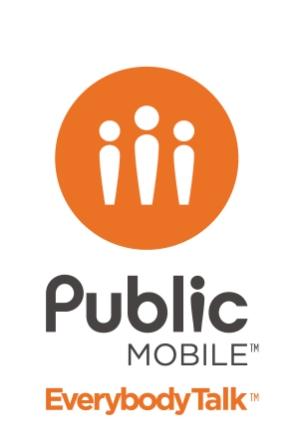
TORONTO – The company has had its hiccups, but as of Thursday, Public Mobile has been open for a year.
The wireless start-up with the spectrum, G-band, that so few wanted (and some quite unique advertising that stands out from the crowd by cleverly using their very customers) has battled the incumbents and new competitors in the marketplace, in front of regulators and in the courts and emerged energized, says Bruce Kirby, the company’s vice-president of strategy and business development.
“It’s been a lively year,” he told Cartt.ca in an interview. “There has been some interesting behaviour by the incumbents who aren’t incredibly inclined to support the notion of a competitive market,” such as Rogers’ creation of low-priced brand Chatr, he explained.
“(Rogers) launched a brand where it’s entire ad budget was spent on negative ads attacking other people. The intent of it was to purely try to create fear in the market among people signing up with the new competitors.”

Public and Wind Mobile complained to the Competition Bureau, which smacked Rogers for its claims of network superiority.
While Public Mobile (an all pre-pay, ultra low-cost wireless play) launched in Toronto quickly last spring and summer, its Montreal network launch which came right after was problematic, with coverage holes and unhappy customers.
“We had some challenges on the Montreal side,” said Kirby. “When you build a wireless network, you have to secure sites and build towers or get on towers or put cell sites on top of buildings. The challenge we ran into in Montreal in a few spots was that we had places where we had planned to build and then at the very last minute there was a problem getting an approval from a landlord or getting the construction done on the rooftops.”
And as they started signing up subscribers at the same time, “we hadn’t fully communicated through to some of the end customers who signed up exactly where some of these issues were,” and the company took a public relations bruising until it got the network right.
Now, the Public Mobile’s network spans from Hamilton to Oshawa in Ontario and it is still building out the Greater Montreal Area. Next up is Ottawa and then Quebec City. It’s spectrum footprint is from Windsor to the Quebec capital.
Public Mobile – which is obvious from its ads – targets a different demo than what would be the typical Telus, Bell or Rogers customer. Its no-contract $15 to $35 a month plans are offered on only five phones – none of which are subsidized the way an iPhone or BlackBerry might be by one of the other carriers who sign customers to long term contracts to help pay off those handsets.

“We like to describe our customers as being value conscious,” added Kirby. “They tend to be price-sensitive. They want a simple, clear plan they can understand at a price they can afford and one where they know they are going to pay the price they were told… because they’re operating from paycheque to paycheque.
“They can’t afford to be told they are buying a $30 plan and getting a $200 bill.”
While Kirby wouldn’t disclose subscriber numbers, Canadian telecom analysts figure the company is closing in on 50,000 customers. “We’re happy with where we are. We continue to steadily grow,” said Kirby, adding their growth is tracking “on a comparable basis” to Wind, whose primary investor, publicly traded Orascom, has to announce its customer numbers.
But with just five phones and some basic talk-text-data plans, how can Public Mobile grow with their customers who might want to move to a higher-end Android phone, or iPhone or BlackBerry?
“Our plan is to expand what we do and support that customer base as they evolve,” added Kirby.
And that will come with the roll out of LTE technology, enabled by the 700 MHz wireless spectrum auction coming in 2012, he believes.
While Public Mobile has been a leader in the courts fighting Wind Mobile’s foreign funding (which went before the Supreme Court last week), Kirby (left) really wants to see the new majority government push forward on loosening the rules on foreign investment in Canadian telecom.

“Our position on foreign ownership rules is all they do is restrict access to capital and therefore they limit the ability of new entrants to compete in the market,” he said. Public’s issue with Wind/Globalive is that the federal government gave “special treatment to one foreign investor and not to everybody else.”
And, when the 700 MHz auction happens in 2012, Kirby anticipates needing additional sources of funding. “We’re going to need to find some additional capital in order to purchase in that auction in order to get additional spectrum to build out further our network and expand the services we have,” he said.
“That’s an easier challenge to do out a do if you’re open to any investor, whether Canadian or not, rather than being tightly constrained to what’s in the Canadian market.”


